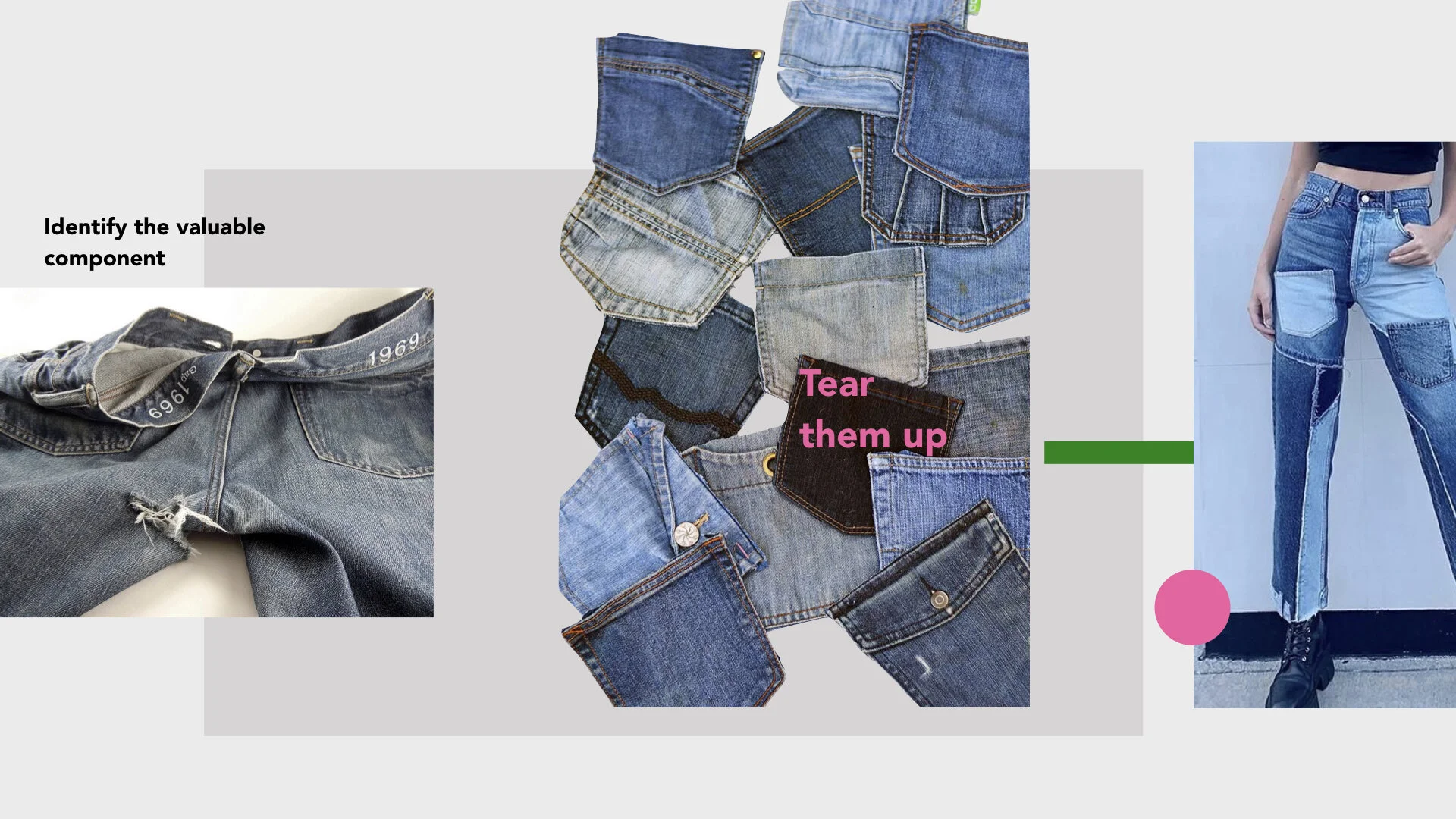Second-Hand, Second-Love: Reimagining Sustainable Fashion in China
In Western countries, signs of the thriving second-hand clothing market are ubiquitous; vintage stores pop up regularly, and each item of clothing is painstakingly marked with information such as the date when it was made or last worn. In contrast, the second-hand market in China is just beginning to emerge in major cities. However, due to the impact of Chinese history, cultural heritage, and values, many people view second-hand clothes as a symbol of poverty: They’re worn, they’re old, and they’re dirty. Widespread stigma hinders the development of the second-hand clothing market in China, and slows or outright stops it from developing in some small cities.
Due to the impact of Chinese history, cultural heritage, and values, many people view second-hand clothes as a symbol of poverty.
In her thesis, Second-Hand, Second-Love: Reimagining Sustainable Fashion in China, Zhenxuan Wang set out to decipher why Chinese consumers attach such a stigma to second-hand clothing. She found that emotional attachment, self-fulfillment, and the lifespan of apparel can lessen or remove this stigma, and therefore play an essential role in the market's sustainable growth and evolution.
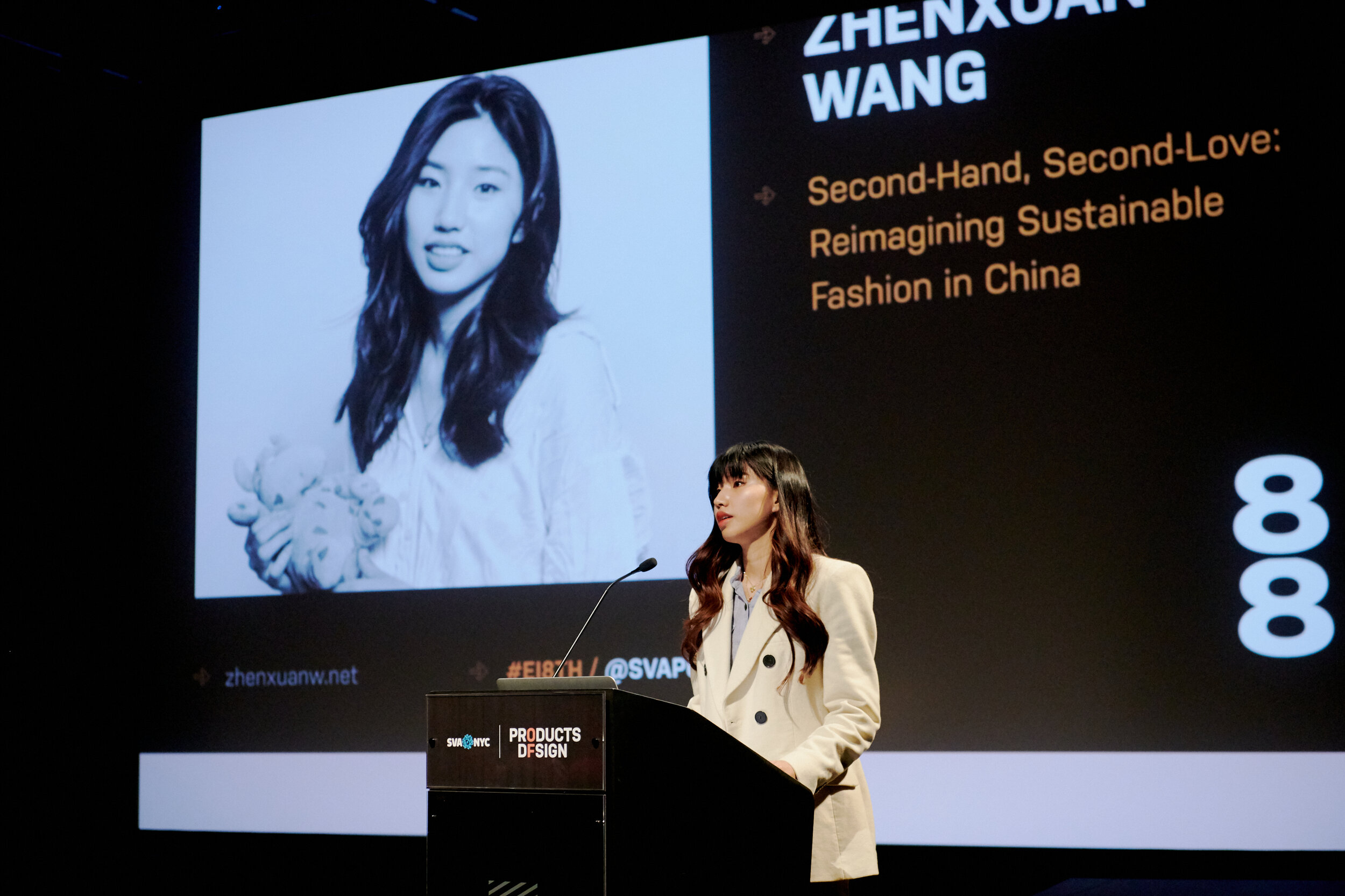
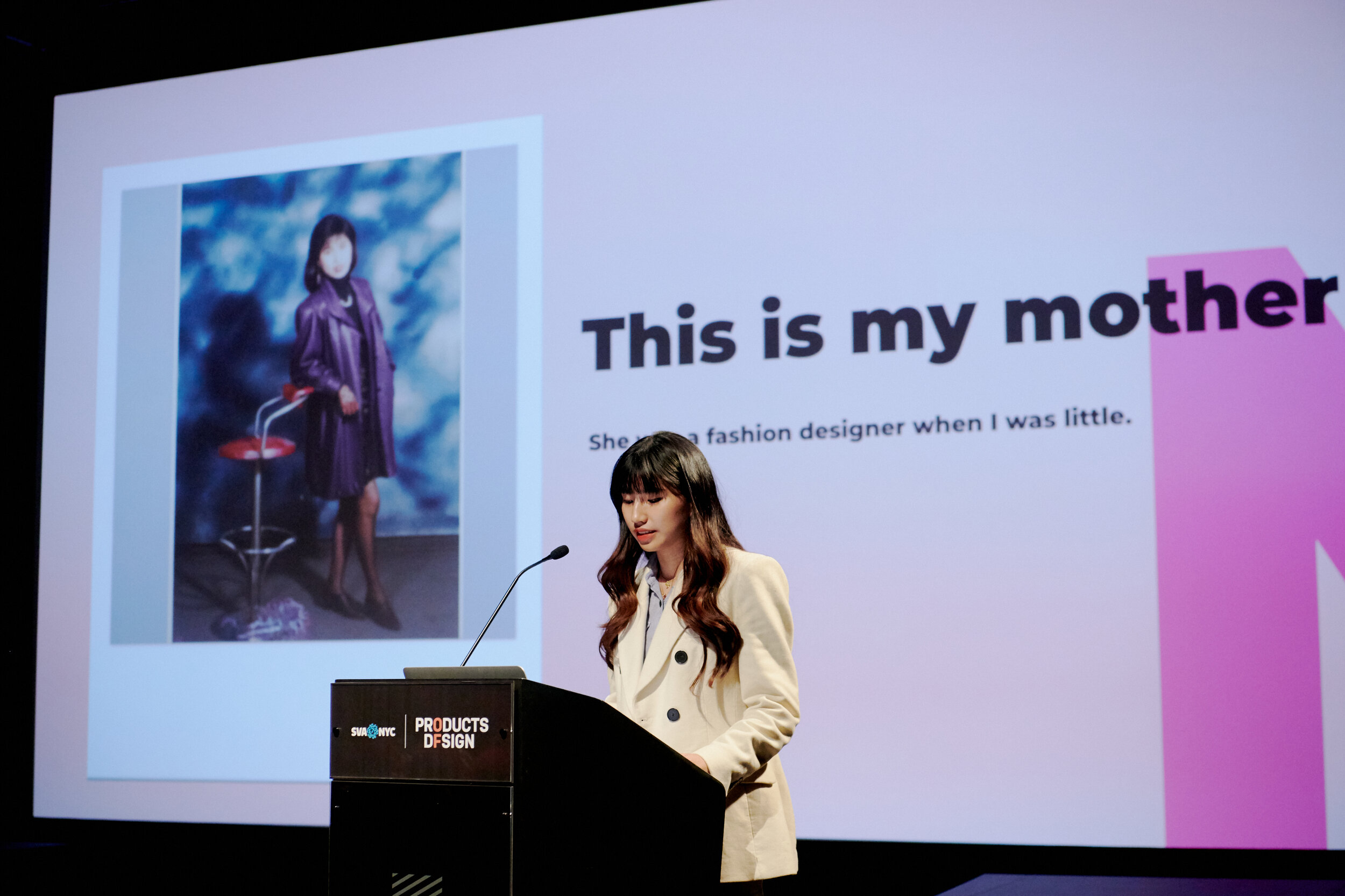
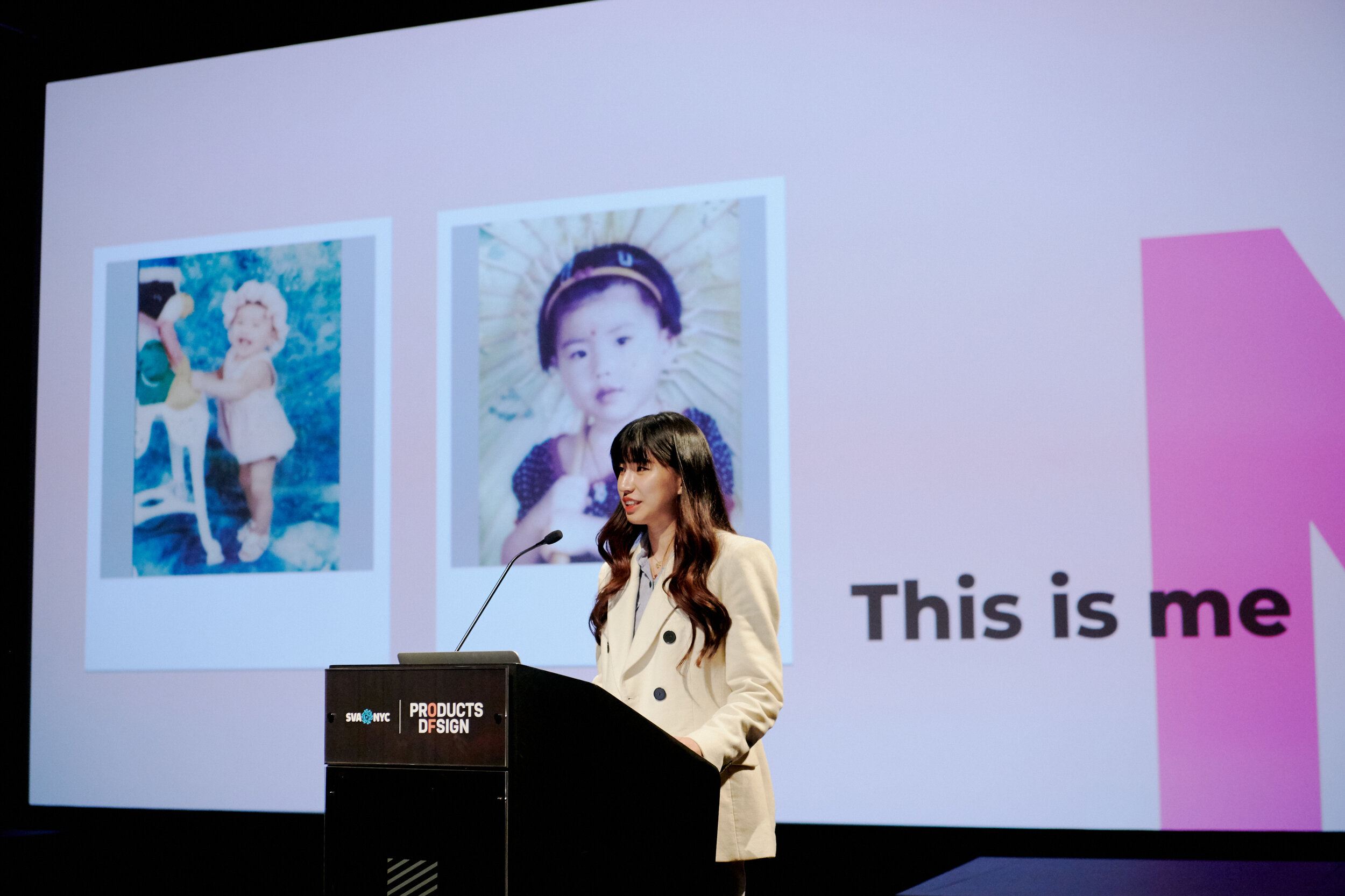
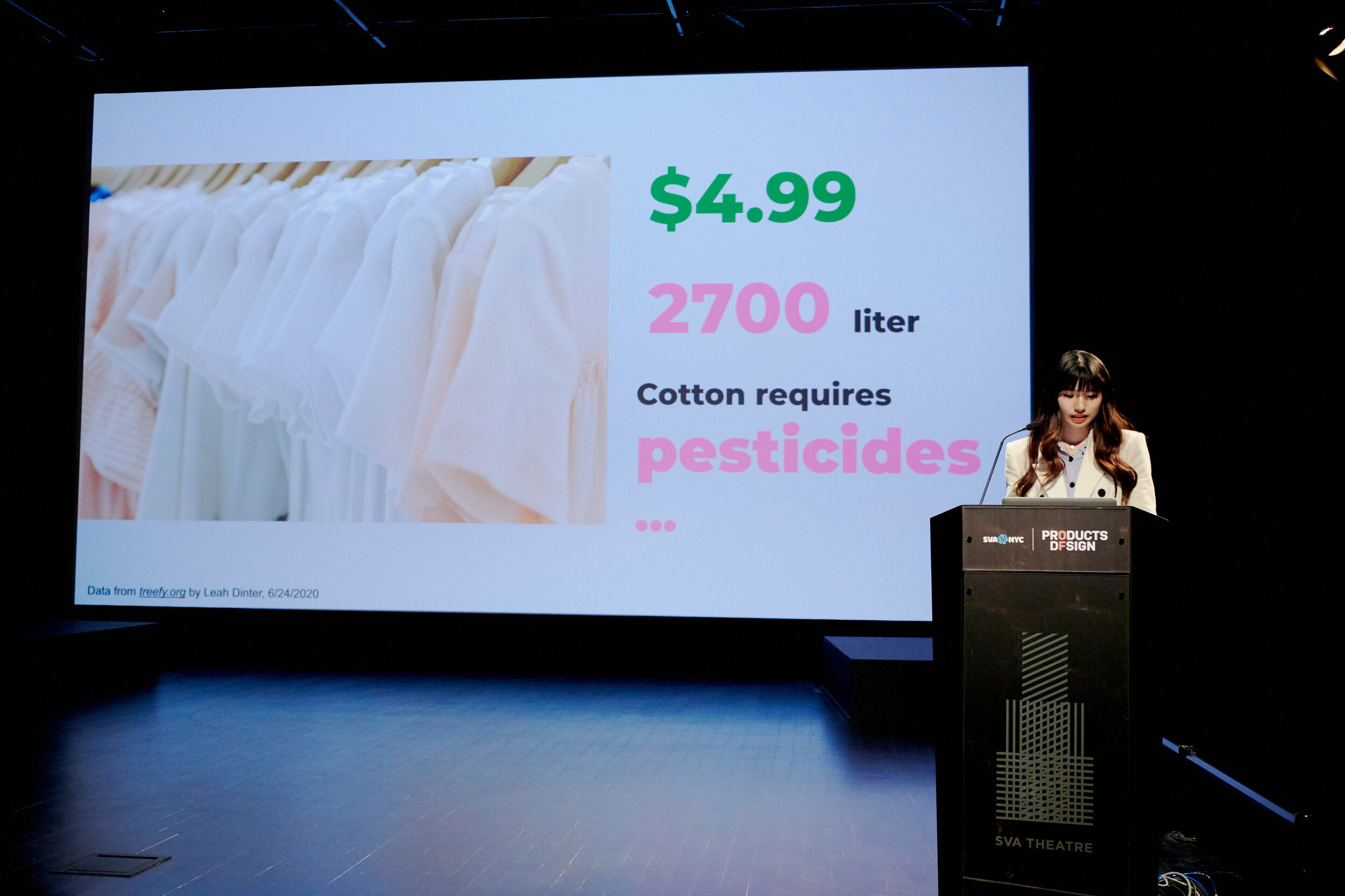
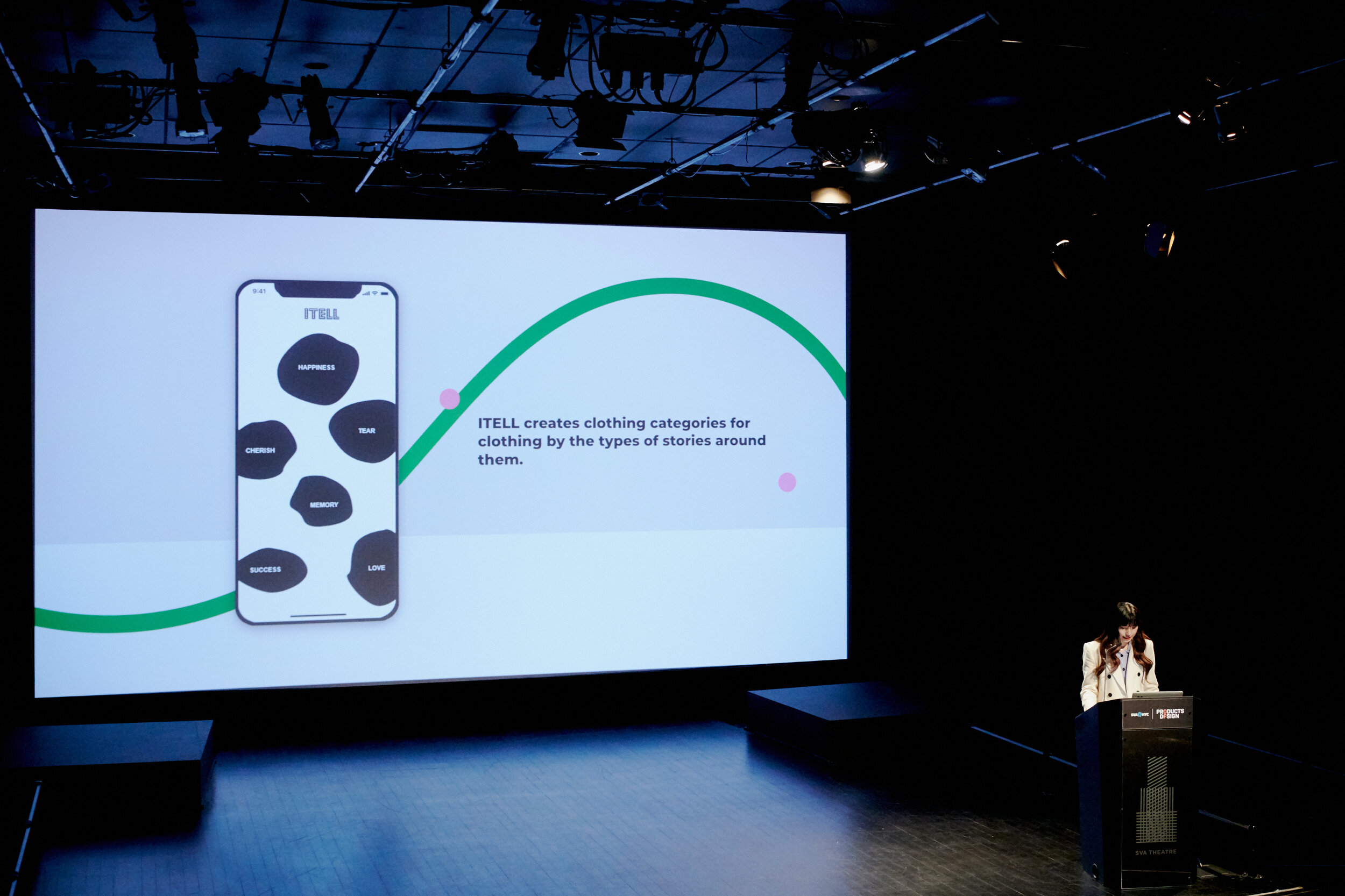


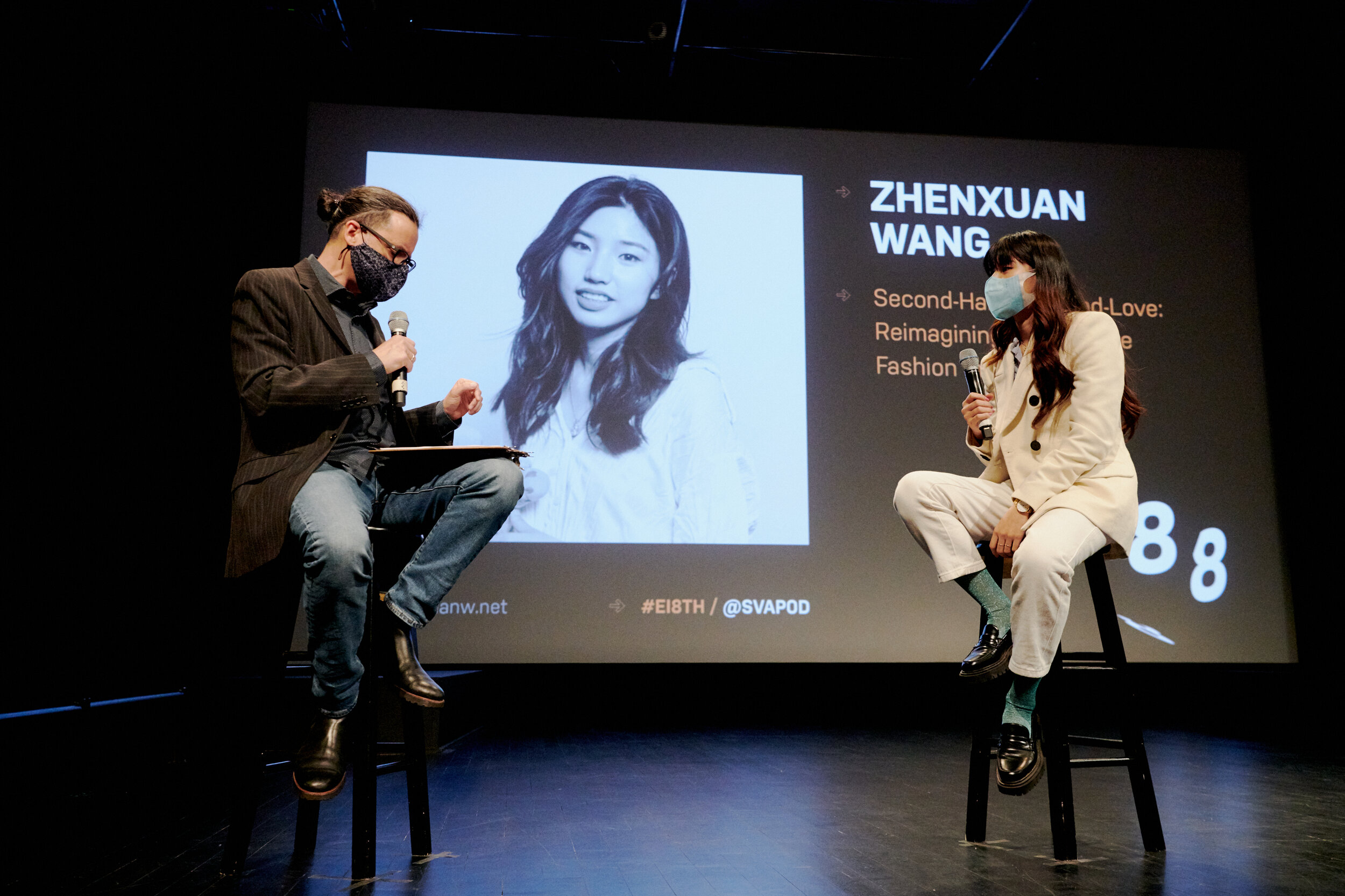
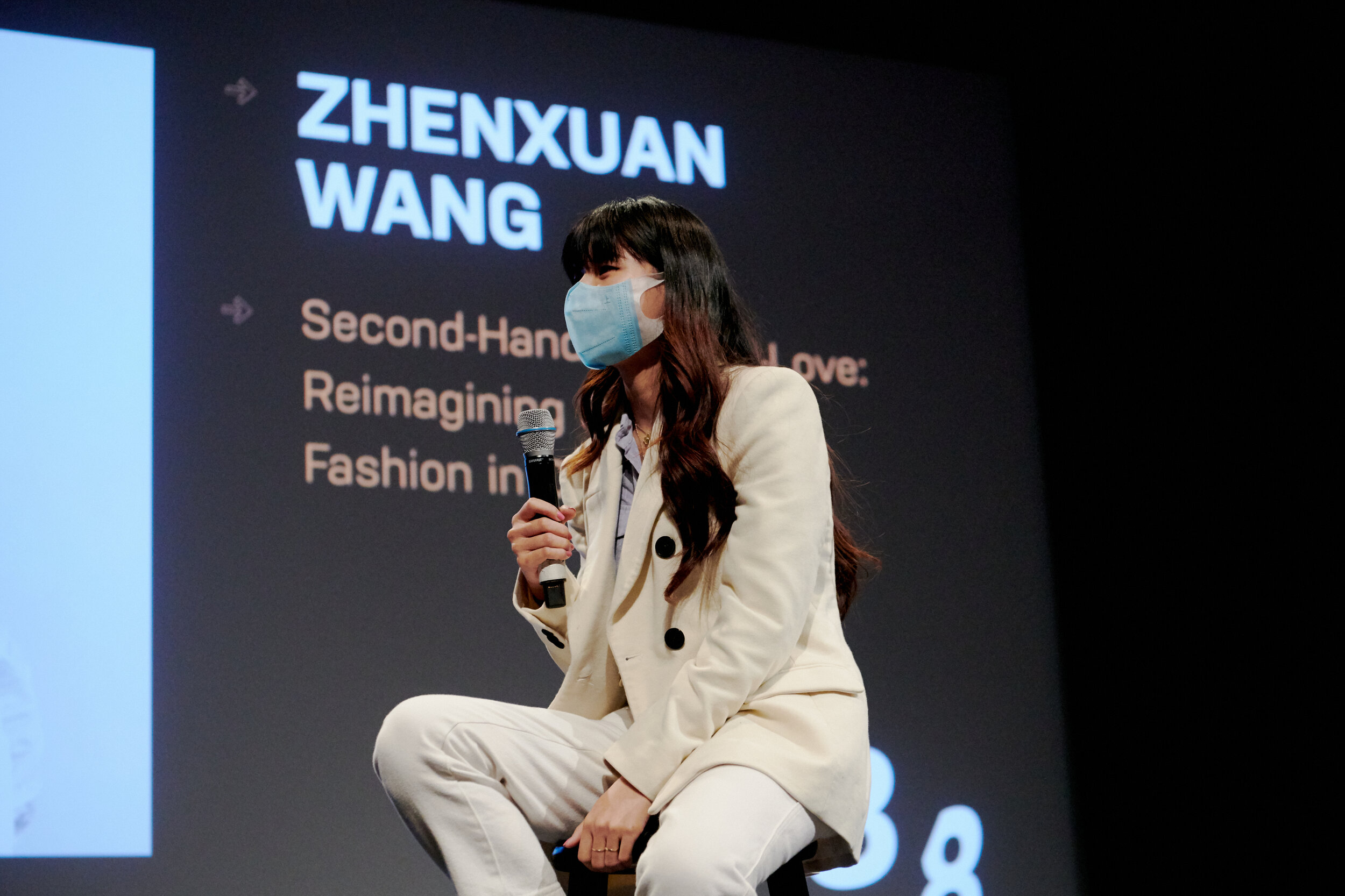
Narrative Threads
Narrative Threads is a new installation shopping experience. A uniquely designed label makes each item of clothing unique—but the catch is, customers cannot view the item before purchasing it. This experience sells clothing through storytelling, allowing the sculpture mouths on the wall to represent each item without displaying the actual apparel.
Inside the Narrative Threads store, a chart lists three different heights on the wall. At each height level, mouths represent different stories for men, women, and kids.
To increase the effectiveness of this new shopping experience, Zhenxuan debuted Narrative Threads in Washington Square Park. She believes the story behind each piece encourages people to value the item, rather than consider the item worthless simply because it was pre-owned. This helps people understand that second-hand clothing is not junk that has been rejected and abandoned, but rather unique items that hold memories and that have been carefully cared for and protected by individuals.
ITELL
Everyone has a different view of objects and their value. Consumers judge the worth of each item based on their own personal values and decide whether to purchase it. ITELL moves customers from the fast-fashion concept of impulsive consumption to a true appreciation for and awareness of each product’s value, so as to support second-hand products. ITELL transforms product collection into product support.
ITELL is a service and a platform that gives users a new shopping experience. ITELL is different from regular fashion apps because it ties clothing categories to stories catered to specific emotions. In general, traditional fashion apps create categories based on the type of garment. People, however, typically let their emotions guide them when they shop. Thus, with ITELL, users can choose the feeling that best suits their current mood.
The stories are about increasing and revaluing second-hand clothing. This minimizes the stigma around it while providing consumers with a new online shopping experience. On the page listing the details of each item of clothing, ITELL offers stories instead of showing basic information about the garment. When donating their own clothing, users can include personalized stories as well. On the map, users can find every participating clothing store that has an ITELL platform.
TURN
When re-examining the value of second-hand clothes and their transactions, it is easy to miss an important factor. Not every piece of second-hand clothing will have perfect storage conditions—some clothes will arrive damaged, and there is no way to prevent that. If this type of second-hand clothing could also be reused, it would reduce waste significantly.
Turn is an audience-focused online platform whose target market is young Chinese consumers living in China's lower-tier cities. Its ultimate target in the second-hand Chinese market is to "take the time to understand the value of second-hand clothing,” reducing the shame associated with second-hand clothing and raising awareness of the importance of recycling.
Turn focuses on assisting young Chinese shoppers in reevaluating the appeal of second-hand clothes and turning old items into new ones, which will assist China in expanding its second-hand apparel industry.
Reformation
Reformation is an organizer that helps users become less fearful about sewing. Since sewing takes time and patience, those who sew pour their hearts into extending the life of the garment, writing their stories into the fabric every time they thread the needle.
Since the 1990s, the manufacturing and export value of Chinese textiles and clothing has grown to become the world's highest. The fast fashion retail industry is increasing steadily. From an ecological perspective, the short lifestyle demand for replacement products only compounds the environmental impact across the phases of manufacturing, transport, and disposal. Therefore, Zhenxuan believes that extending a product's lifecycle may have many environmental benefits.
However, the prospect of having to sew clothing can seem cumbersome and inconvenient for some. It takes time to organize the right sewing tools, to sew, and then to painstakingly return the tools—the rotary ruler, the bodkin, the gauges, the threader, the pinking shears, and more—to their correct place.
Therefore, Reformation is designed to assist the user with using and organizing sewing tools. It helps consumers realize that sewing is not too complicated, and that it can be an enjoyable, worthwhile activity meant to give their clothing new life. Each garment is both a life-long memory and a fresh vision, a new idea. Second-hand clothes are not waste. Rather, they are items worth using and reusing, and reflect wearers’ unique tastes and passions.
To learn more about Zhenxuan Wang’s work, take a look at her projects in more detail at www.zhenxuanw.net.





















